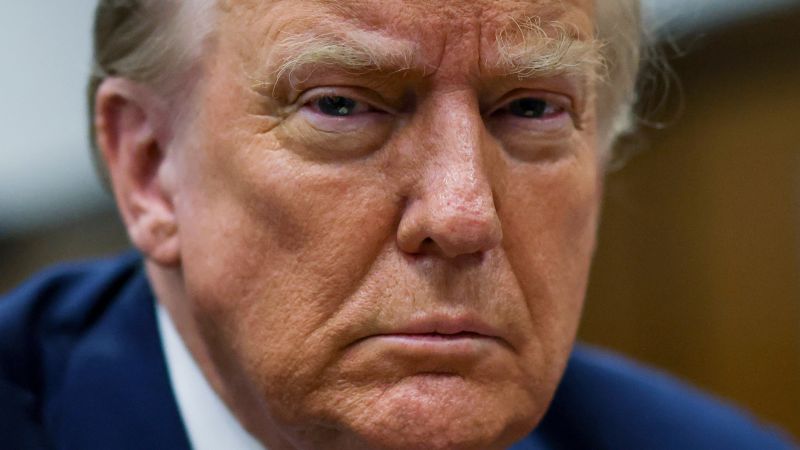Former President Donald Trump has been meeting with foreign leaders in recent weeks, despite no longer having the official capacity of the White House. These meetings have taken place at his homes in Florida and New York, with leaders such as Polish President Andrzej Duda, British Foreign Secretary David Cameron, and the Saudi Crown Prince Mohammed bin Salman. This kind of interaction between a presidential candidate and foreign leaders is not uncommon, as seen with past candidates like Barack Obama and Mitt Romney engaging in similar activities.
President Joe Biden and his administration have also met with opposition leaders, following a long-standing practice for US officials. However, Trump’s meetings hold a distinct significance due to his prior experience in foreign policy, filling the State Department with his appointments, and existing relationships with many of these same leaders. This has presented a new dynamic for Biden to navigate as his administration faces various challenges abroad, with the pace of Trump’s meetings adding further complexity to the situation.
The contrasting worldviews and approaches to foreign policy between Biden and Trump have been a focal point, with Biden focusing on strengthening ties with traditional overseas partners and criticizing Trump’s relationships with rival foreign powers like Putin and Xi Jinping. In contrast, Trump has emphasized his purported successes in preventing conflicts like those in Ukraine and between Israel and Hamas and has expressed admiration for leaders like Xi and Putin.
The Trump campaign has characterized these meetings as reflective of global recognition of Biden’s perceived weakness and predicts a more secure and prosperous America under Trump’s leadership once more. Some of the leaders engaging with Trump, such as Hungarian President Viktor Orban, have been at odds with Biden, highlighting the potential shifts in diplomatic relationships and alliances depending on the outcome of the presidential election.
Trump’s meetings with foreign leaders come amidst ongoing discussions between other current US officials and foreign representatives, indicating a complex landscape of engagement and diplomacy. These interactions have ranged from discussions on military cooperation and alliance-building to informal conversations about shared sentiments, like admiration for Queen Elizabeth II. The dynamic between current US leadership and potential future leadership like Trump adds an extra layer of complexity to these diplomatic engagements.
Overall, the resurgence of Trump on the international stage through these meetings with foreign leaders highlights his continued influence and presence in global affairs despite no longer holding an official position. This trend underscores the growing importance of relationships and interactions between political leaders on the global stage, shaping future diplomatic strategies and alliances in response to changing political landscapes.


